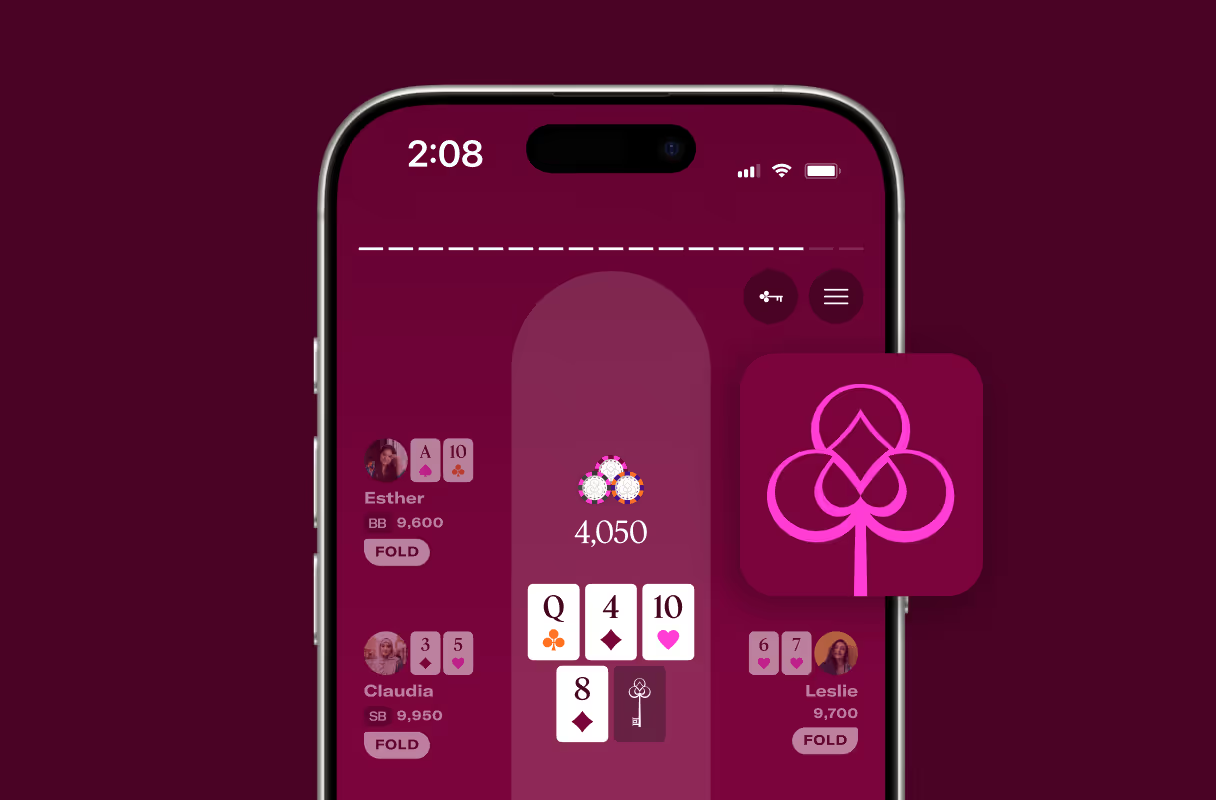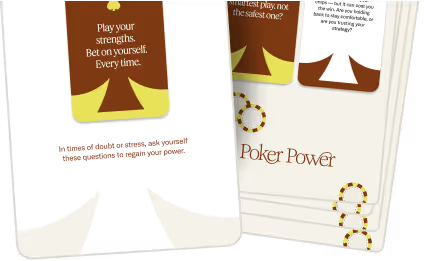While poker players get in the game for all sorts of reasons, great players tend to have similar motivations for improving. Scores of card sharks cite these reasons as drivers of their pursuit for poker glory.
Testing yourself in a meritocratic atmosphere
Poker is in many ways a great equalizer; cards don’t know the demographic of their holder. You can sit at a table with the peace of mind that dominant strategies will prevail in the long run and no player is given preferential treatment in-game.
Poker gives you an honest reflection of your current abilities and an array of methods to improve. You hone your skills with a Poker Power class (or discussion with respected peers,) play until you’re crushing it, then move up to face a more difficult table of opponents. Rinse, repeat.
This process is a cleansing affirmation of value in a world where some things are so out of our control. Moving up in poker builds confidence to take risks in life and engrains a self-assurance in the risks you take regardless of outcome.
Improving your decision making
Understanding ideas key to success in poker will improve your decision making in other games. Interviews in Computer Science, data science, consulting, and prop trading will often quiz the elements of game theory learned through poker.
Advanced comprehension of game trees for vast poker games (such as No-Limit Hold' em) prepares you for modeling competitive markets or any sort of applied economics in academia. Even if you’re not interested in these fields, growing your intellectual vitality through poker is a naturally satisfying feeling.
Finding truth in something you’re fascinated by
Think about the first time you played poker. Did you feel like there were countless ways to play hands? Did you hem and haw about play styles, only to end the game with more questions than answers? Learning poker quenches curiosity while simultaneously presenting ever-more granular puzzles to dive into.
As an example, I was always intrigued by what to do with flush draws out of position (players acting after you). I dug into when to check-call vs check-raise vs mix between the two, what bet sizes made sense, and situational properties that affect which hands to play more aggressively.
I’m far from a perfect poker player, but my learning in this niche scenario developed the feeling that I was building toward a sophisticated strategy and a personal accomplishment.
Gaining coveted knowledge to share
Poker is more popular now than it has ever been. Quarantine’s activity restrictions led many to discover online poker, and this renaissance of fascinated beginners comes with a strong demand for teachers. Becoming great at poker will give you opportunities to mentor less experienced players.
Teaching poker challenges you to find multiple ways of explaining concepts to connect with students’ various learning styles. Poker is more similar to calculus or physics than to history or language in that knowledge is gained via cognitive breakthroughs and contextual application rather than the retention of facts.
When you guide others to these “aha” moments, you can indirectly discover more about the way people think. A seasoned teacher is an understanding friend, a thoughtful parent, and a persuasive professional.
If any of these reasons have inspired you to become great at poker, you can learn more about the power of poker and begin your journey with one of our free community poker classes.
Poker Power is for educational purposes and does not permit gambling in our clubs. No poker experience is required.





